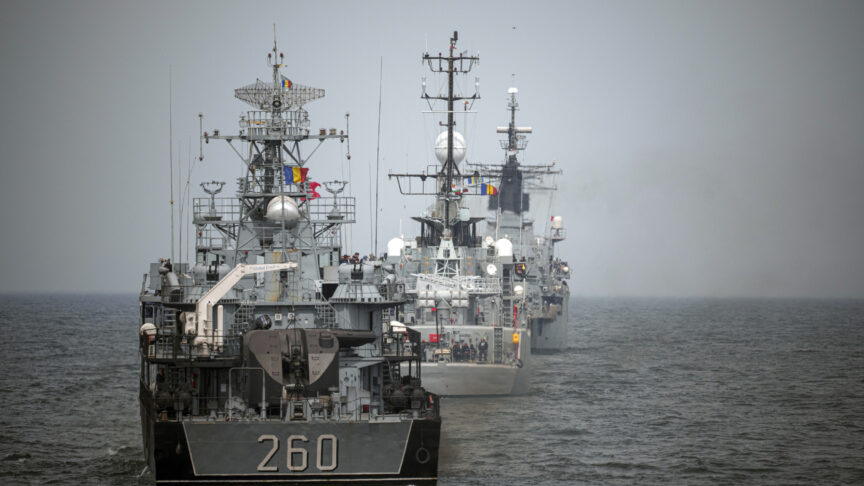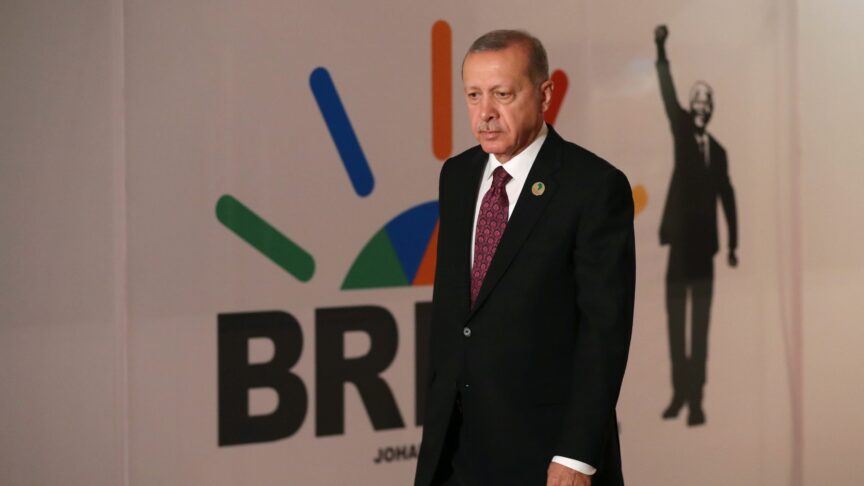Russia’s EU Trojan horse makes a change
Bulgaria seems to have learned a lesson from January?s gas crisis ? Europeanise its energy resources. Vessela Tcherneva gives a first hand account of the Sofia Energy Conference
This op-ed first appeared in the EUObserver on 29 April 2009
EUOBSERVER / COMMENT – Trojan horses are not what
they used to be – or at least some of them are not. Who would have predicted
only two weeks ago that one of Russia’s
most trusted friends in the EU, Bulgaria,
would become the arena of bold European action against Russian energy
interests? And who would have thought that the Bulgarian Prime Minister would
be left hanging for a whole day in Moscow’s
court, waiting for a meeting with the throne?
The energy conference that took place in Sofia on 24-25 April was
billed nationally as an “energy Davos.” Others, especially in Brussels, were sceptical.
Both anticipations were for the same reason: the expected participation of
Russian Prime Minister Vladimir Putin. He was the first and most high-ranking
guest to confirm his participation, thus implicitly dedicating the summit to
advance the South Stream project.
Like its cousin, the North Stream, the South Stream’s
purpose is to by-pass transit countries like Ukraine
and strengthen the monopoly Russia
has over gas exports to many EU countries. While there is a lot of talk about
diversification of sources and routes (including the Caspian) Russia’s
strategic objective is to prevent just that.
With the Bulgarian side heavily preoccupied with
the formalities of the summit (gathering Putin, Berlusconi, Barroso and around
10 more heads of state in Sofia), Brussels and Moscow were sparring over its
content. Moscow pushed hard to turn the
conference into a South Stream Summit, with attempts to sign bilateral
agreements with Bulgaria
on using its national transmission system for the project.
The EU meanwhile suggested that a discussion with Russia and others (such as Turkey) on the
rules applying to energy security would be preferable than a discussion on
pipelines. If pipelines were to be discussed, the argument was that this should
include the Southern Corridor, allowing talk of non-Russian projects including
Nabucco. After several weeks of negotiating the final declaration, the
situation on the eve of the conference was fragile.
With the declining financial results of Gazrom
since the beginning of the year and lower energy consumption in Europe due to
the financial crisis, Russia
was trying hard to diminish the costs of the South Stream project. Using
existing infrastructure along the route is seen in Moscow as a means for reducing the costs (and
hence make South Stream more competitive relative to Nabucco). So the (unexpectedly)
firm response from Sofia against granting its
national pipeline system for South Stream was a setback for Russia’s energy
expansion – and triggered a decision by Putin not to participate in the summit.
The forum in Sofia
turned out to be a European event with Commission’s President Barroso ‘stealing
the show’ from the Russians, as widely commented by the local press. As the
Europeans had suggested, the talks developed more around rules and principles
than concrete projects. The final declaration managed
to mention the need for transparency of the contacts and the prices of gas
deliveries.
The deliberately opaque nature of contracts has
long been a major instrument for bilateral blackmail by Gazprom. The
declaration also referred to the European Energy Charter, despite last-minute
Russian attempts to have that reference removed in view of the recent proposal
by President Medvedev for new rules on global energy co-operation.
While Russia
has signed the Energy Charter, it has not ratified it, meaning that European
companies cannot operate freely in the Russian market nor have their
investments protected.
For the EU, the substantive points it secured in
the declaration means that it is a good starting point for further discussions
with Russia (for instance in the post-PCA negotiations) as well as with other
energy players. The weakness of the declaration is that there are no provisions
or mechanisms to ensure monitoring an implementation of the rules that everyone
signed up for.
The energy conference was, on the whole, an
unspectacular event on the European political scene. But it did offer an
interesting chapter in Russian-Bulgarian relations. Obviously irritated by
Gazprom’s failure to sign the desired deal on
South Stream, Russian President Medvedev made
Bulgarian Prime Minister Stanishev wait for 36 hours in Moscow for a meeting that had been agreed
months in advance.
In the end, representatives of Gazprom and the
Bulgarian energy holding signed a preliminary agreement that envisages building
a new, separate pipeline for South Stream rather than giving Gazprom a 50%
stake in the whole of Bulgaria’s
transit system. This marked a shift in Russia’s position. With Turkmenistan on cooler terms with Moscow these days, Russia clearly calculated that the
risk has increased that Nabucco could be built first. Accordingly, paying a
higher price for South Stream would still bring higher strategic returns.
After the January gas crisis, Bulgaria has
clearly drawn the lesson that close ties with the Kremlin do not automatically
translate into actual gas flowing in pipelines. Nobody has paid any
compensation for the losses of the cold weeks in January.
In recent months, Russia has been pushing Bulgaria
on three different energy fronts: on gas (South Stream); on nuclear (with
Russia rumoured to offer finance for a €3.8 billion new power plant in Belene,
in return for state guarantees); and on oil (the Burgas-Alexandroupolis
pipeline is being planned).
Hopefully, the government in Sofia has realised that ‘europeanising’ its
energy policies is the only way. In this respect the Sofia Summit was a
success. As one senior EU official noted, the Bulgarians are learning to say no
to Russia
– politely but firmly. Trojan horses have the chance to change.
Vessela Tcherneva
is a Senior Policy Fellow at the European Council on Foreign Relations and Head
of its Sofia
office
The European Council on Foreign Relations does not take collective positions. ECFR publications only represent the views of their individual authors.


